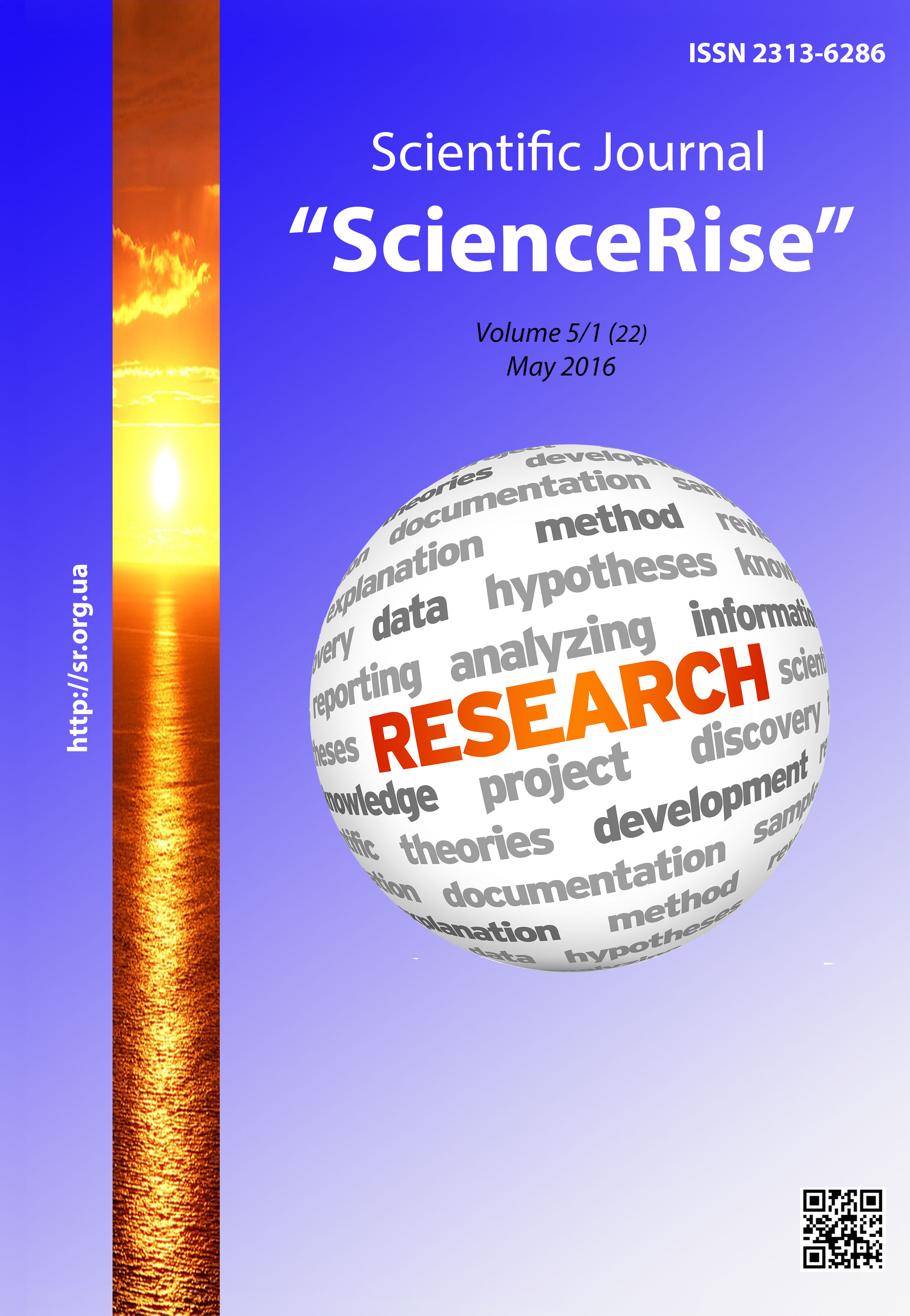Исторический процесс и небесный менеджмент: месседж Гесиода
DOI:
https://doi.org/10.15587/2313-8416.2016.69142Ключові слова:
Гесиод, миф о расах, небесный менеджмент, железный век, историософия, регрессАнотація
Статья посвящена экспликации теологических и аксиологических воззрений Гесиода, лежащих в основе его историософской модели. Поэт сформулировал проблему, которая стала первым философским вопросом в греческой культуре – проблему несоответствия сущего и должного. Поднятая им тема стала отправной точкой греческого интеллектуального проекта, и именно Гесиод способствовал тому, что философия зародилась на его родине
Посилання
Halapsis, A. (2016). Marcus Aurelius and the concept of apotheosis in the ancient worldview. ScienceRise, 4/1 (21), 54–59. doi: 10.15587/2313-8416.2016.67547
Herodotus. (1975). The Persian wars. Cambridge, MA; London: Harvard University Press; William Heinemann, 504.
Spengler, O. (1926). The decline of the West: Form and actuality. New York, NY: Alfred A. Knopf, 443.
Most, G. W. (2006). Introduction. Hesiod. Theogony. Works and Days. Testimonia. Cambridge, MA; London: Harvard University Press, i–lxxv.
Hesiod. (2001). Polnoe sobranie tekstov [Complete Works]. Moscow: Labirint, 256.
Hesiod. (2006). Theogony. Works and Days. Testimonia. Cambridge, MA; London: Harvard University Press, lxxxii, 308.
Barnett, R. D. (1945). The epic of Kumarbi and the Theogony of Hesiod. The Journal of Hellenic Studies, 65, 100. doi: 10.2307/626341
Eliade, M. (1978). A history of religious ideas. Chicago, IL: The University of Chicago Press, xvii, 489.
Penglase, C. (1997). Greek myths and Mesopotamia: Parallels and influence in the Homeric hymns and Hesiod. London; New York, NY: Routledge, 250.
Haubold, J. (2002). Greek epic: a Near Eastern genre? Proceedings of the Cambridge Philological Society, 48, 1–19. doi: 10.1017/s006867350000081x
Van Noorden, H. (2015). Playing Hesiod: The “Myth of the Races” in classical Antiquity. Cambridge: Cambridge University Press, 350.
Scully, S. (2016). Hesiod’s Theogony: From Near Eastern creation myths to paradise lost. New York, NY: Oxford University Press, 288. doi: 10.1093/acprof:oso/9780190253967.001.0001
Nelson, S. A. (1998). God and the land: The Metaphysics of farming in Hesiod and Vergil. With a translation of Hesiod’s Works and Days by David Grene. New York, NY; Oxford: Oxford University Press, xvi, 252.
Koning, H. H. (2010). Hesiod, the other poet: Ancient reception of a cultural icon. Leiden; Boston, MA: Brill, ix, 439. doi: 10.1163/ej.9789004186163.i-440
Hunter, R. (2014). Hesiodic voices: Studies in the Ancient reception of Hesiod’s Works and Days. New York, NY: Cambridge University Press, viii, 338. doi: 10.1017/cbo9781107110816
Strauss Clay, J. (2003). Hesiod’s cosmos. Cambridge: Cambridge University Press, xii, 202. doi: 10.1017/cbo9780511482397
Plato. (1997). Complete works. Indianapolis, IN; Cambridge, MA: Hackett Publishing Company, 1838.
Horace, C. F. (1970). Ody, epody, satiry, poslaniya [Odes, epodov, satires, letters]. Moscow: Khudozhestvennaya literature, 479.
Strauss Clay, J., Gilan, A. (2014). The Hittite “Song of Emergence” and the Theogony. Philologus, 158 (1), 1–9. doi: 10.1515/phil-2014-0001
Walcot, P. (1956). The text of Hesiod’s Theogony and the Hittite epic of Kumarbi. The Classical Quarterly, 6 (3-4), 198. doi: 10.1017/s0009838800020176
Walcot, P. (1966). Hesiod and the Near East. Cardiff: University of Wales Press, xiii, 154.
West, M. L. (1999). The East face of Helicon: West Asiatic elements in Greek poetry and myth. New York, NY: Clarendon Press, xxvi, 662.
Halapsis, A. (2010). Totalnost istorii [Totality of history]. Grani, 5 (73), 33–37.
The New Oxford annotated Bible. New revised standard version. With the Apocrypha (2010). New York, NY: Oxford University Press, 2416.
Pseudo-Dionysius. (1899). The works of Dionysius the Areopagite. London: James Parker & Co., xx, 168.
##submission.downloads##
Опубліковано
Номер
Розділ
Ліцензія
Авторське право (c) 2016 Алексей Владиславович Халапсис

Ця робота ліцензується відповідно до Creative Commons Attribution 4.0 International License.
Наше видання використовує положення про авторські права Creative Commons CC BY для журналів відкритого доступу.
Автори, які публікуються у цьому журналі, погоджуються з наступними умовами:
1. Автори залишають за собою право на авторство своєї роботи та передають журналу право першої публікації цієї роботи на умовах ліцензії Creative Commons CC BY, котра дозволяє іншим особам вільно розповсюджувати опубліковану роботу з обов'язковим посиланням на авторів оригінальної роботи та першу публікацію роботи у цьому журналі.
2. Автори мають право укладати самостійні додаткові угоди щодо неексклюзивного розповсюдження роботи у тому вигляді, в якому вона була опублікована цим журналом (наприклад, розміщувати роботу в електронному сховищі установи або публікувати у складі монографії), за умови збереження посилання на першу публікацію роботи у цьому журналі.

